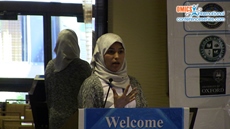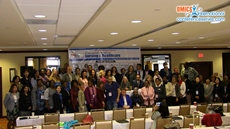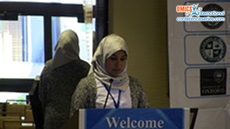
Ameera Aldossary
King Fahad Specialist Hsopital-Dammam, Saudi Arabia
Title: Patient-Nurse psychosocial and communication skills in Military Hospitals in Saudi Arabia
Biography
Biography: Ameera Aldossary
Abstract
Background: High reliance on expat nurses without preparing them to develop psychosocial and communication competencies (i.e., language, culture) to deal with Saudi patients is a major problem. Previous studies conducted in the Middle-East indicating that nurses are not performing eff ective communication with patients as they are not using patient-centered approach when delivering nursing care. Many factors were stated as hindering of eff ective communication such as workload, organizational support and culture with priorities were given to the physical care.
Objectives: To compare the view of patient and nurse participants regarding patient-nurse psychosocial and communication performance in three military hospitals in the Eastern province of Saudi Arabia and to identify hindering factors of patientnurse psychosocial and communication performance in three military hospitals in the eastern province of Saudi Arabia.
Methods: A descriptive survey was considered to be the most appropriate design to address the study aim and objectives using Quota sampling method in order to achieve good response rate. All nurses and Saudi patients located in the Military hospitals in the eastern providence were the target population. A 14 activity items of “psychosocial and communication aspects of patient care” that drawing upon the King’s Nurse Performance Scale was used as a measurement tool. In addition, 6 items were developed from the literature review and added to the self-administered questionnaire in order to address all the study objectives.
Results: Th e overall response rate was 61% (n=362) with a response rate by sample group as follows: Nurses (n=218, 73%) and patients (n=144, 48%). Th e patient participant’s response confi rming that patient-nurse psychosocial and communication performance in military hospitals needs improvement as it is performed occasionally and seems not delivered within the nursing daily care. While more than half of the nurse participants (n=112, 53%) agreed that the nurse does not have enough time to communicate with the patient eff ectively, slightly more than 60% (n=86) of the patient participants disagreed indicating that patients are expecting patient-nurse psychosocial and communication within the nursing daily care. However more than half of the patient participants agreed that the nurse does not speak the patient’s language to be able to communicate with him/her (n=74, 53%) and the nurse has very limited knowledge about patient’s culture to be able to communicate with him/her (n=79, 56%).
Conclusion: Th us, an improvement of nurses’ psychosocial and communication skills is needed for eff ective performance. Policy and decision makers in Saudi Arabia especially in Military hospitals need to consider this issue seriously as it is a part of quality of care and patient safety.



